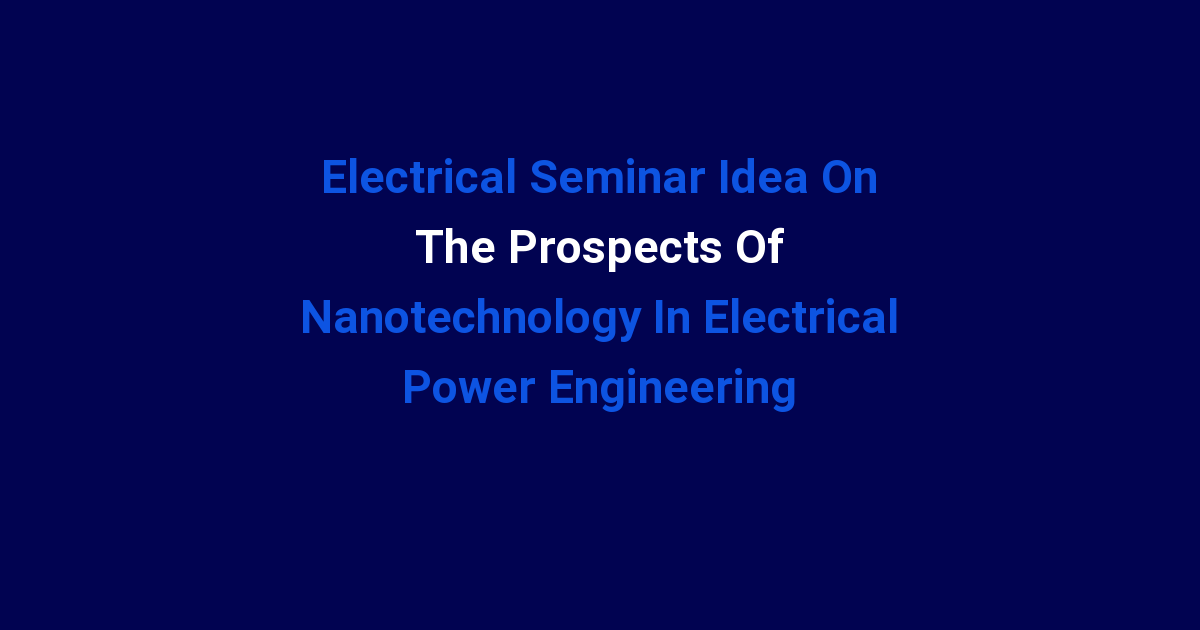Seminar idea: Exploring the Potential of Nanotechnology in Advancing Electrical Power Engineering.
Electrical Seminar Idea: Prospects of Nanotechnology in Electrical Power Engineering
Introduction
Electrical power engineering plays a crucial role in the modern world, providing the necessary infrastructure to supply electricity for various applications. With the rapid advancements in technology, there is a growing need to improve the efficiency and reliability of electrical power systems. Nanotechnology, with its ability to manipulate materials at the atomic and molecular level, offers promising prospects for enhancing electrical power engineering.
Problem Statement
Traditional electrical power systems face challenges such as energy losses, voltage fluctuations, and limited bandwidth. These issues can lead to inefficiencies and reliability issues in the power supply. To address these challenges, innovative solutions are required to improve the performance of electrical power systems.
Existing System
The existing electrical power systems rely on conventional materials and technologies, which have limitations in terms of efficiency and performance. For example, copper and aluminum are commonly used for conducting electricity, but these materials have high resistance and susceptibility to heat loss. In addition, the current transformers and circuit breakers have limited sensitivity and response time, which can affect the overall performance of the system.
Disadvantages
Some of the disadvantages of the existing electrical power systems include:
- Energy losses due to resistive materials
- Limited bandwidth for high-frequency applications
- Poor sensitivity and response time of current transformers
- Reliability issues during peak demand periods
Proposed System
The proposed system involves the integration of nanotechnology in electrical power engineering to overcome the limitations of traditional systems. Nanomaterials, such as carbon nanotubes and graphene, can be used to improve the conductivity and heat dissipation of electrical components. In addition, nanosensors and nanodevices can enhance the sensitivity and response time of monitoring systems in power grids.
Advantages
Some of the advantages of incorporating nanotechnology in electrical power engineering include:
- Reduced energy losses and improved efficiency
- Enhanced conductivity and heat dissipation
- Higher sensitivity and faster response time in monitoring systems
- Enhanced reliability and performance during peak demand periods
Features
The proposed system will incorporate the following features:
- Utilization of nanomaterials for improved conductivity and heat dissipation
- Integration of nanosensors and nanodevices for enhanced monitoring and control
- Implementation of smart grid technologies for optimizing energy usage
- Adoption of renewable energy sources for sustainable power generation
Conclusion
In conclusion, the prospects of nanotechnology in electrical power engineering offer promising solutions to enhance the efficiency and reliability of power systems. By leveraging nanomaterials and nanodevices, it is possible to overcome the limitations of traditional systems and improve the performance of electrical power grids. The integration of nanotechnology in power engineering is a step towards a sustainable and efficient energy future.

